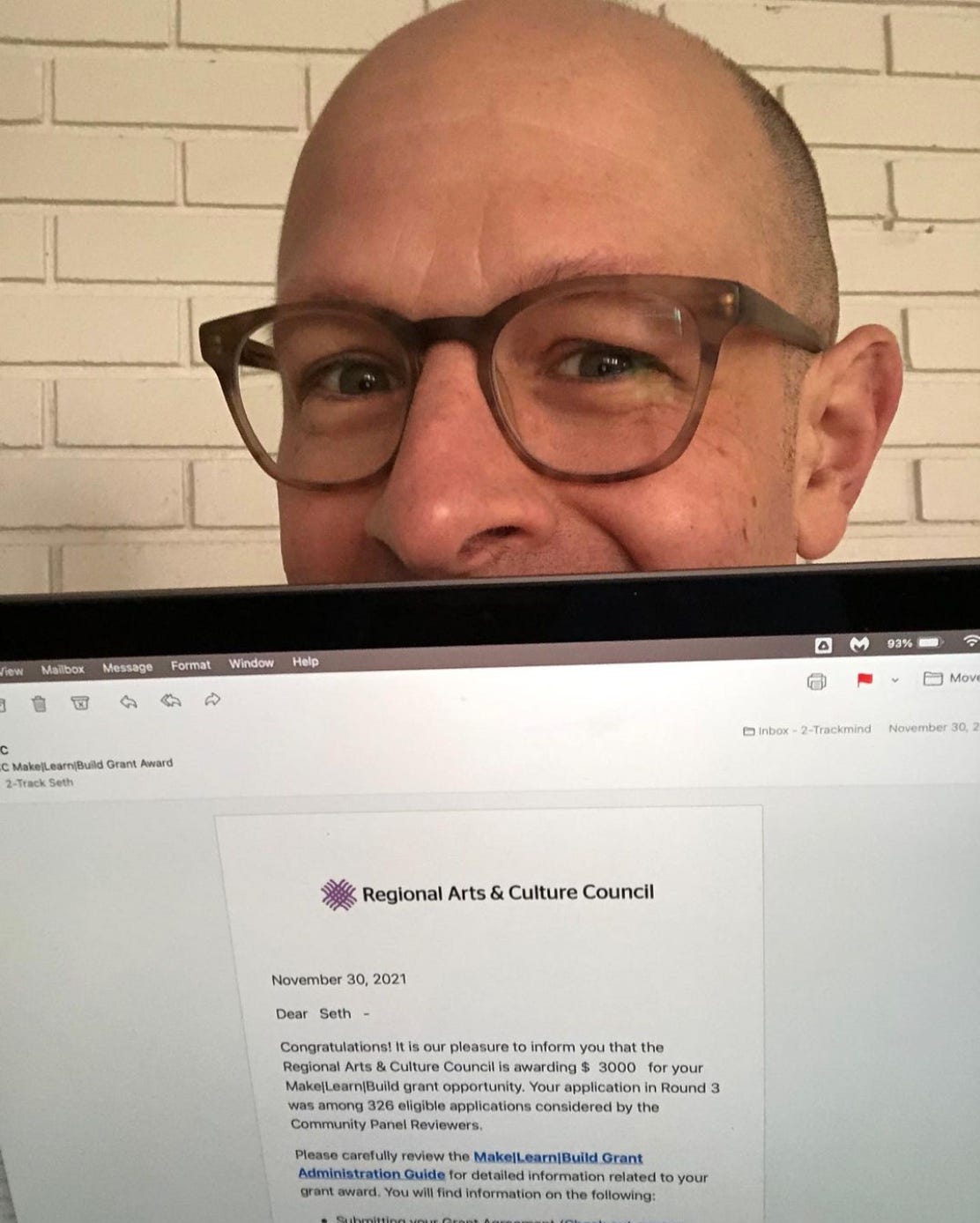So I Got a Grant. Now What?
Awarded $3000 to finish my book, I had a choice to make: Hire a publicist or an editor? I came to the right decision, but the path leading there was twistier than I could’ve imagined.
“Congratulations!” read the email. “The RACC is awarding you $3000 for your grant opportunity.”
As the words sank in, I felt a quiet thrill run up and down my body. The money was a big deal; the vote of confidence an even bigger one. Now I could hire a publicist, maybe make a little bit of a splash. Sure, the manuscript still needed work, but I’d get tha…
Keep reading with a 7-day free trial
Subscribe to Dispatches From the Fringe to keep reading this post and get 7 days of free access to the full post archives.



